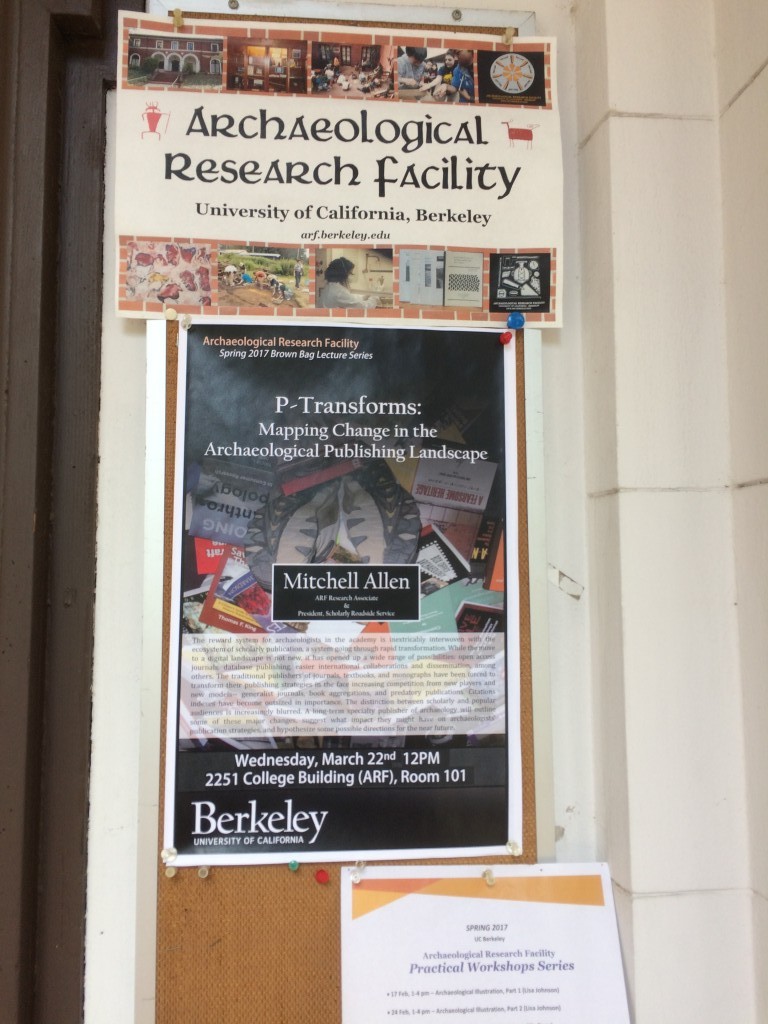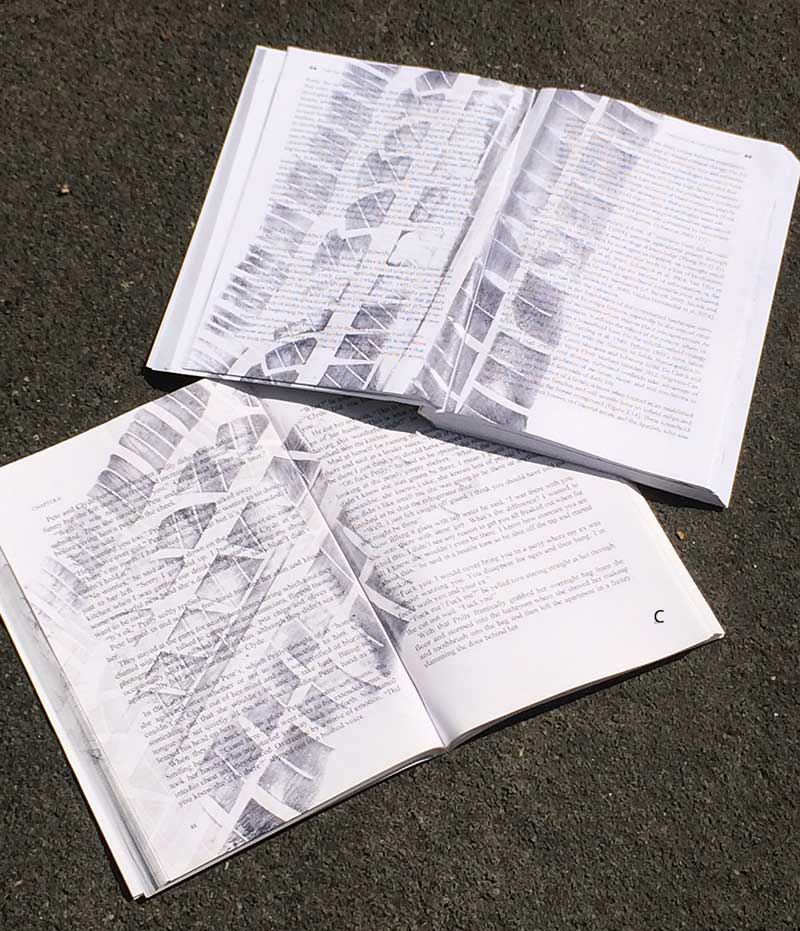


Mitch’s Blog
Is There a Future for Scholarly Publishing?
Saturday, March 25, 2017
It was almost the last question, from the always perceptive Ruth Tringham: “This all sounds so depressing. Is there no hope for a future for scholarly publishing?”
Until then, I thought I was out of the woods. I had been invited to speak to the Berkeley archaeologists about changes in the publishing landscape as part of my role as a new Research Associate at the appropriately named Archaeological Research Facility, ARF.
I thought I had done well, dancing through industry consolidation, the growth of aggregations of content for sale, the “Big Deal” publishers jousting with library consortia (no, not jousting, I used a photo of pig wrestling as my metaphor). Then I riffed through most of the major kinds of publications and talked about what I see is happening with them. I’ve reported on many of them here: textbooks, monographs, reference books, journals, citation indexes.
I kept harping on the same themes. Bigger is better in this ecosystem. Selling lots of material is easier than selling a single book, journal, article. Changes-- or non-changes-- that occur have much to do with the academic reward system. Electronic publications have changed the landscape but are not the answer. Neither is open access. Publishing costs money so someone has to pay. Ruth was right. It was pretty negative all in all: big publishers are winning, predatory publishers abound, innovating in this environment is difficult without loads of money, the financial stresses on universities limit what is possible to change an increasingly unequal system. Then there is the spectre of Google or Facebook or Amazon wandering into this kingdom and undoing everything.
I had done a lot of research for this presentation, and stole whatever I could from the publishing prognosticators at Scholarly Kitchen. After all, this is Berkeley, bursting with smart people. The questions were good ones, showing that I had piqued interest. Then came Ruth’s question, sandwiched between one scholar’s musing over being asked by his publisher to create abstracts for each chapter of his book and another wondering about the possible implications of the Sci-Hub pirates for the journal firewall system.
Is there any hope?
In a way, I had already voted on this with my feet. There was no compulsion to sell Left Coast off to Routledge a year ago. We were doing well, expanding, and well-respected in our little niche. But, in addition to the party line about “it’s time to retire,” there was this nagging uncertainty in the background about just these questions. How would a small publisher wrestle with the latest initiative from Springer or Elsevier or, even more troubling, Google or Microsoft? One little experiment proposed by a junior functionary at one of those behemoths, even if it were a failed experiment, might take over my secure-if-microscopic niche and leave the Left Coast in ruins. Having run every bookstore in Walnut Creek out of town, Amazon is putting their own brick and mortar store in the Broadway Plaza mall this spring. If they discover in a year that it was a mistake they just shut it down and take a tax writeoff. But those other bookstores won’t be coming back any time soon.
I couldn’t afford their mistakes on top of my own.
There have been cycles in the past where large consolidations of this, or any, industry has left space on the forest floor for small companies to incubate and, like mushrooms, grow in the dim half-light, eventually blossoming into the next generation of publishing houses. I muttered something like that in answer to Ruth’s question, unconvinced by my own words. The Jefferson Starship approach:
 You know Tyrannosaurus Rex was destroyed before
You know Tyrannosaurus Rex was destroyed before
By a furry little ball that crawled along
The primeval jungle floor
He stole the eggs of the dinosaur
So is there any hope?
Today, as I reflected on it, hope reasserted itself. Mostly this stems from observations from my Scholarly Roadside Service consulting practice. One small publisher took the demise of Left Coast to hire Caryn, my talented archaeology editor, and launch an archaeology list from the ground up. [Archaeologists, publish with Berghahn. Write me for Caryn’s email!] Another European archaeology press is using this opportunity to expand its presence in North America. The manager of a former competitor left his job and is about to launch a new social science press from the ground up. And those are only the ones I know about. Lots of other people are experimenting with new electronically-driven models, apps, and services for scholarly authors. These are all experienced, knowledgeable people filling that niche on the forest floor, snuggling in with the pine needles. So, Ruth, I guess there is some hope.
And, of course, as soon as I had written this paragraph came the news that Bill Gates’s Foundation just launched an open access platform to house the results of all the studies he is funding, one which would effectively circumvent the traditional publishing system. Can Microsoft be far behind?
I’m still gonna hope.
Jefferson Starship lyrics http://www.azlyrics.com/lyrics/jeffersonstarship/maumauamerikon.html. Mouse in forest Tony Kinghorn, from Wikimedia Commons.
(c) Scholarly Roadside Service
Back to Scholarly Roadkill Blog
Scholarly Roadside Service
ABOUT
Who We Are
What We Do
SERVICES
Help Getting Your Book Published
Help Getting Published in Journals
Help with Your Academic Writing
Help Scholarly Organizations Who Publish
Help Your Professional Development Through Workshops
Help Academic Organizations with Program Development
CLIENTS
List of Clients
What They Say About Us
RESOURCES
Online Help
Important Links
Fun Stuff About Academic Life


